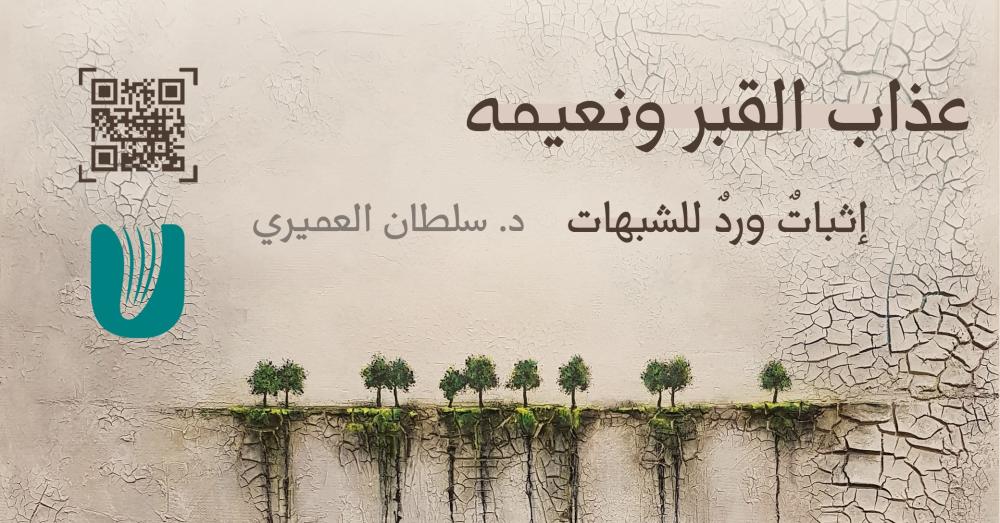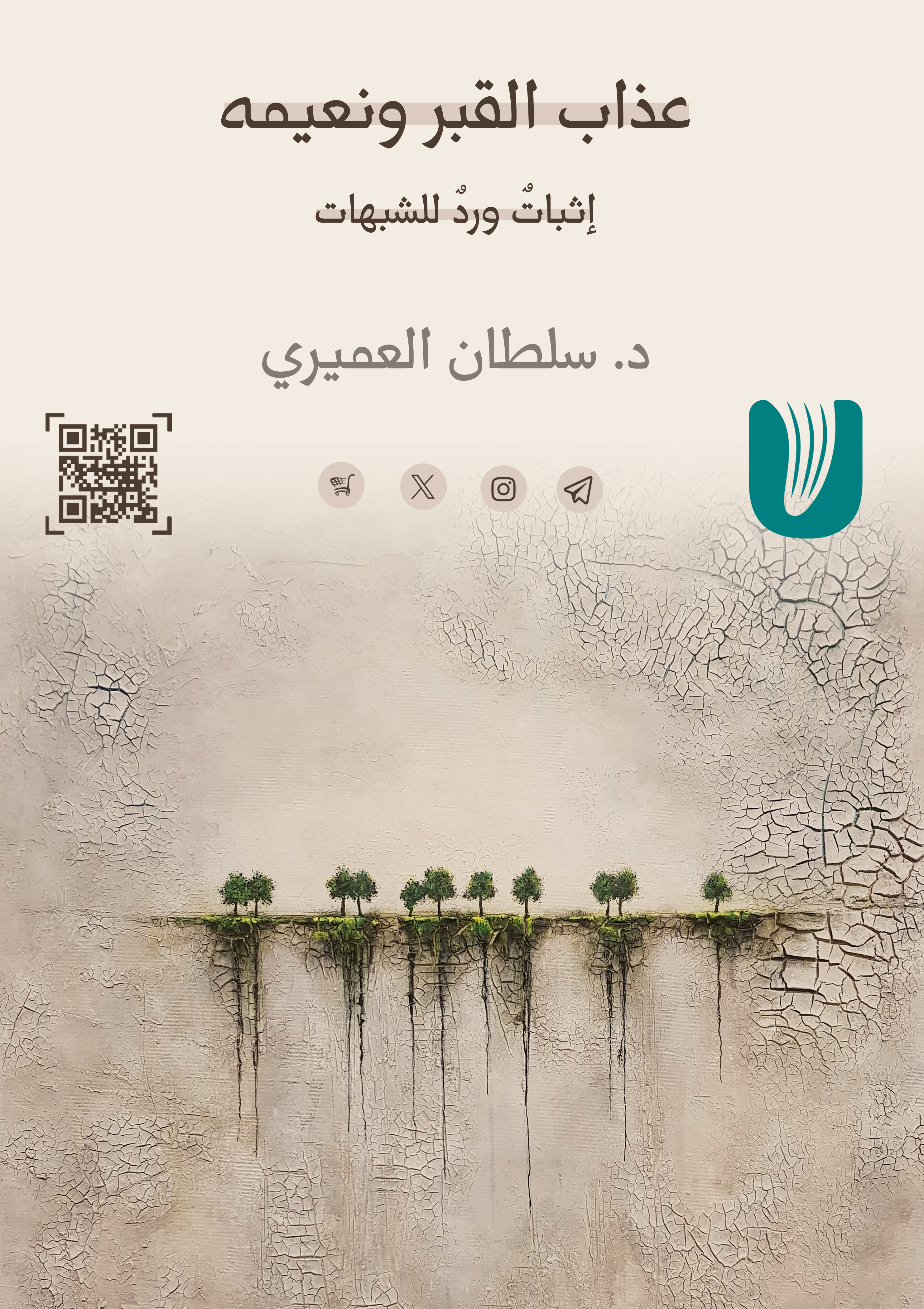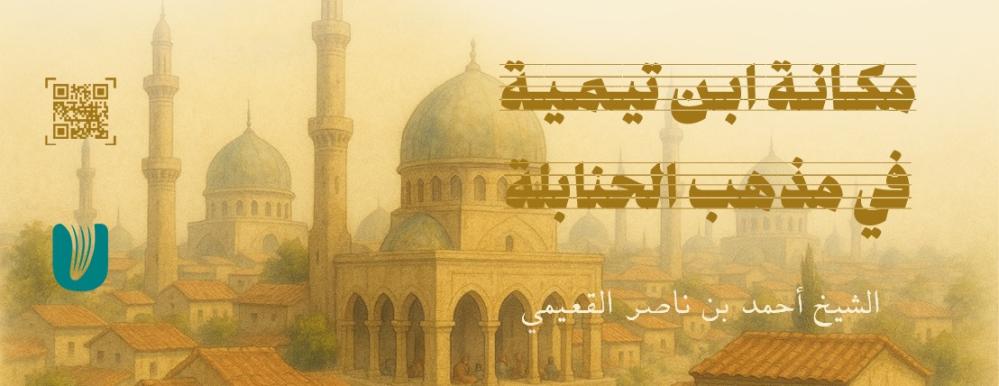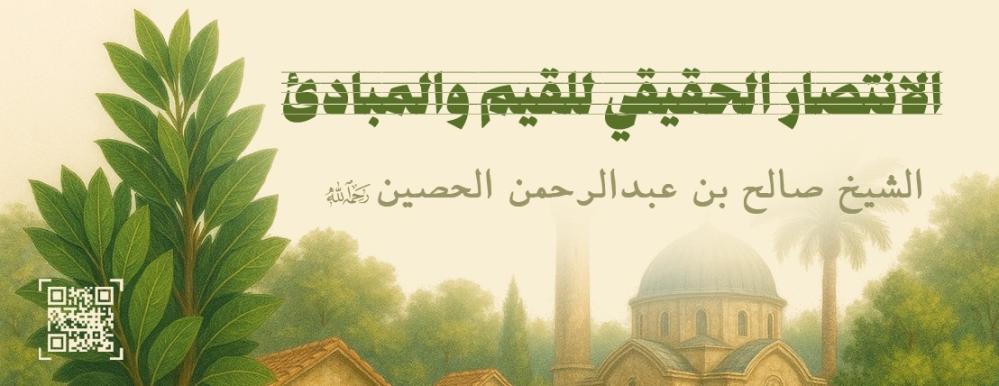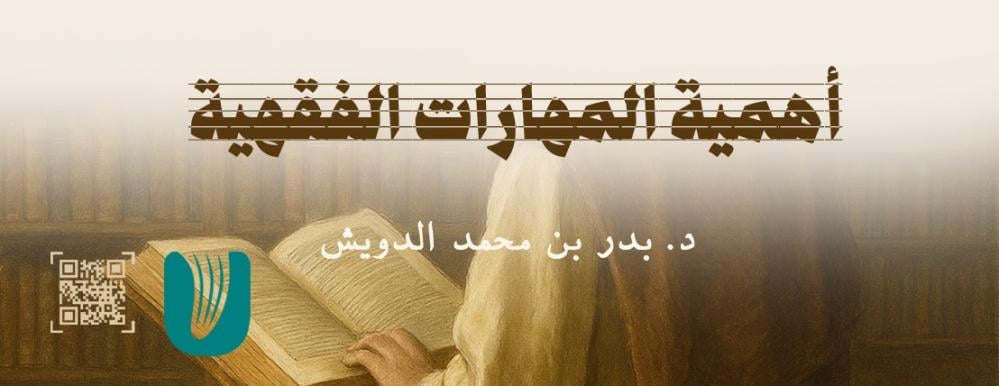The torment and bliss of the grave
"Proof of suspicions"
Dr.. Sultan bin Abdul Rahman Al Amiri
The Sunnis, the community, and the majority of the nation, including the Ash’aris, Maturidis, and Mu’tazilites, believe that the torment and bliss of the grave are fixed and a reality.
The torment of the grave is a purely news matter that has nothing to do with reason, and it has been indicated by the Qur’an and the Mutawatir Sunnah, except that the Qur’an’s indication of it is not clear, nor is it conclusive. There are many connotations, many texts, and many verses from the Qur’an that scholars have used as evidence. We will present a number of them, and explore their significance. Is it conclusive or is it speculative?
The first verse: The Almighty says: {The Fire to which they will be exposed every morning and the evening, and on the Day when the Hour will arise, admit Pharaoh’s family to the severest of the torment*} [Ghafir: 46]. This verse was used as evidence for the torment of the grave by a number of imams of the predecessors. Such as Mujahid bin Jabr, Ikrimah, Muqatil, Muhammad bin Ka’b, Al-Bukhari in his “Sahih”, and others, and they relied on his saying: {And on the day the Hour arrives, enter the family of Pharaoh}; The fire to which they are exposed is not the torment of the afterlife; If it were the torment of the Hereafter, it would not be correct to say: {And on the day the Hour arrives, admit Pharaoh’s family to the severest of torment*}.
The second verse: The saying of God Almighty: {And We will certainly make them taste the lesser punishment, apart from the greater punishment, so that perhaps they will return *} [Al-Sajdah: 21]. The imams of the Salaf differed greatly about this verse. Some of them said: What is meant by the minimum punishment is the misfortunes of this world. Among them are those who said: What is meant by the minimum punishment is the limits that are imposed in this world. Among them are those who said: What is meant by the minimum punishment is killing by the sword. And some of them said: What is meant is the punishment. The lowest: it is the torment of the grave, and it is the saying of Mujahid.
What is most likely in the meaning of this verse is that it does not refer to the torment of the grave, although it is well-known as evidence for it. Al-Tabari says: “The most appropriate opinion regarding this is to say: God promised these immoral people who disbelieved in His promise in this world the lesser torment that He would make them taste without the greater torment, and the torment: is what was in the world.” This world, whether it be a calamity that befalls them, or distress, such as famine or killing, or misfortunes that they befall, all of that is from the lower torment.”[(47)], and he did not mention the torment of the grave.
The verse indicates that what is meant by it is not the torment of the grave, and that is in His saying: {Perhaps they will return *}, so it is clear from its indication from the composition of the verse that what is meant by it is: return, repentance, and repentance, and whoever dies cannot return.
The third verse: The Almighty’s saying: {And indeed, for those who do wrong is a punishment other than that, but most of them do not know it. He is single, and Ibn Abbas is one of the Companions. Some of them said: What is meant by hunger, and some of them said: What is meant is calamities in this world.
Ibn Jarir al-Tabari suggested that what is meant by the torment that is less than that is all of these matters, so it includes the torment of the grave[(48)].
But based on this difference, the verse is not a definitive text regarding the torment of the grave. If no other texts came to prove the torment of the grave; When it is correct to prove the torment of the grave with this verse; Because it has no significance, but our ruling in general is based on the implications of other texts. If those texts had not come, we would not have known about the torment in the grave.
Verse Four: God Almighty says: {And among the Bedouins around you are hypocrites, and among the people of Medina have returned to hypocrisy. You do not know them. We know them. We will punish them twice, then They will be returned to a great punishment. The first: captivity, and the second: the torment of the grave. Among them are those who said: What is meant by the first torment is misfortunes, and the second torment is the torment of the grave. Some of them said: What is meant by the first torment is the punishment, and the second torment is the grave. It was said otherwise.
Whoever considers the interpretations of the imams of the Salaf for this verse will find that they are almost unanimously agreed that the second torment is the torment of the grave, but as for the first torment, they differed greatly about it. Among those who mentioned that the second torment is the torment of the grave: Ibn Abbas among the Companions, Al-Suddi, Mujahid, Qatada, and others.
Al-Tabari says: “The most correct opinion in my opinion is that it is said: God told us that He would punish those who persisted in hypocrisy twice, and He did not provide us with evidence by which we could come to know about those tormentors. It is possible that some of what we mentioned about those who said it is what we reported about - that is, the statements that preceded - and we do not have knowledge of any of that, although in the Almighty’s saying: {Then they will be returned to a great punishment *} [Al-Tawbah: 101] is an indication that the punishment is in Both times are before entering Hell, and most likely one of the two times is in the grave”[(49)].
Verse five: God Almighty says: “And if you had seen when the wrongdoers were in the depths of death, while the angels were spreading out their hands You have said something about Allah other than the truth, and you were disdainful of His signs. *} [Al-An’am: 93] , and this verse was used as evidence by a number of scholars. Proof of the torment of the grave, including: Al-Bukhari, Ibn Rajab, and Ibn Al-Qayyim.
Ibn al-Qayyim explained the significance of it, saying: “This is the address of this verse, an address to them at the time of death, and the angels have been informed, and they are the truthful ones, that they will then be rewarded with a humiliating torment at their death, or what is close to their death, and if that had been delayed for them until the end of the world, it would not have been true that It will be said to them: Today you will be rewarded”[(50)].
The sixth verse: The Almighty saying: {God is the most of you Say “No, you will know what will befall you of the torment of the grave”[(51)], and Al-Tirmidhi narrated on the authority of Ali bin Abi Talib, may God Almighty be pleased with him, that he said: “We used to doubt the torment of the grave until this verse was revealed”[(52)]. But this effect is weak and was weakened by a number of scholars.
Al-Tabari says: “His saying: {until you visited the graves*} [At-Takadir: 2]; That means: until you went to the cemeteries and were buried there; This is evidence of the validity of the statement about the torment of the grave. Because God Almighty said about these people who were distracted by multiplication that they would know what they would encounter if they visited graves as a feast for them and a threat”[(53)].
This verse follows the path of the threat, and the threat is attached to the grave. This indicates that they will receive torment in the grave. Its significance is apparent; Rather, it is one of the strongest Quranic evidences of the torment of the grave.
Seventh verse: The Almighty’s saying: {And whoever turns away from My remembrance will certainly have a straitened living, and We will gather him on the Day of Resurrection blind. It contains the torment of the grave, and among those who said this opinion were Abu Saeed Al-Khudri, Abu Hurairah, and Al-Suddi, and Al-Tabari and others chose it.
As for the significance of the Sunnah, the Sunnah has combined to prove the torment and bliss of the grave, and the prophetic texts that came in this case reached the point of being mutawatir, and were ruled to be mutawatir: Ibn Taymiyyah, Ibn al-Qayyim, Ibn Rajab, Ibn Abi al-Izz, and others[(54)], and from that. :
The first hadith: On the authority of Anas, may God be pleased with him, that the Prophet, may God’s prayers and peace be upon him, used to say: “O God, I seek refuge in You from inability, laziness, cowardice, and miserliness, and I seek refuge in You from the torment of the grave, and from the trials of life and death” [(55)], and in this hadith I mentioned Seeking refuge from the torment of the grave, and the question of bliss in the grave was not mentioned.
The second hadith: On the authority of Anas, may God be pleased with him, that the Prophet, may God’s prayers and peace be upon him, said: “If you had not buried me, I would have prayed to God to hear you from the torment of the grave” [(56)].
Among them are the texts that mention the bliss of the martyrs and the bliss related to the souls of the believers.
Its problem and its payment:
If it is said: The bliss of the grave is affected by what came from the angel saying to the believer in the grave after the examination: “Sleep soundly, for we know that you are certain”[(57)].
It was said: That is not a problem; Because it is possible to interpret this hadith as meaning that what is meant by sleep is a small amount, or to interpret it as meaning sleep of the body, not the soul.
* The position on the torment of the grave:
A number of sects denied the torment of the grave, and among the most famous of them are: the materialists in ancient and modern times. Their denial is based on their denial of all the unseen, and they mentioned some doubts regarding the torment of the grave regarding it, including:
The first suspicion: that the crucified person does not see signs of torture on him. If he was an infidel, he would be tortured after his death. The effect of torment would appear on him, and similarly, if the believer was blessed after his death, it would appear on him.
The second suspicion: If we had uncovered the grave immediately after burial, we would not have found the dead person to have changed his condition, and the hadith about him is that he sits and asks.
These suspicions are not new, as Islamic scholars knew them more than a thousand years ago, and Judge Abd al-Jabbar, Ibn al-Qayyim and others mentioned them, and they answered them [(58)]. The answer is that all of these questions are based on measuring the conditions of the Hereafter and the Barzakh with the conditions of this world, and we do not We say that, so we are not obligated to adopt those meanings unless we say that what happens in the grave agrees in reality with what happens in this world, and this is not our saying; Rather, we declare its denial.
Believing in things without realizing their facts is not specific to believers. Many people in astronomy and other sciences believe in things and know their meanings, but do not know their facts.
The correct way to discuss these people is to return them to the origin from which they started, which is to deny the unseen, and prove its invalidity. If we do that, then it will be easy to discuss these details with them.
alert:
It is often attributed to the Mu'tazilites as a whole that they denied the torment of the grave, and the correct view is that the Mu'tazila unanimously agreed to prove the torment and bliss of the grave, and only a few of them denied it. Judge Abdul-Jabbar says: “A chapter on the torment of the grave, and in summary there is no disagreement about it among the nation, except for something transmitted from Dirar bin Amr, who was one of the companions of the Mu’tazila, then he joined the Mujabara, and for this reason you see Ibn al-Rawandi slandering us, and saying: The Mu’tazila deny the torment of the grave, but do not acknowledge it.”[(59)], Then Judge Abdul-Jabbar began to infer the torment and bliss of the grave, and said Abu Ali al-Juba’i - one of the great imams of the Mu’tazila - said: “I asked Al-Shaham - who is also one of the imams of the Mu’tazila - about the torment of the grave, and he said: None of us denies it, but it is only narrated on the authority of Dirar”[(60)].
Judge Abdul Jabbar’s statement may reflect this statement: “Our sheikhs denied the torment of the grave in every case; Because the news is contained in this in the sentence, so what is said by it is as much as the news requires without what is more than that, and therefore no time is given for that torture, even though the closest thing in the news is that it is the times approaching burial, even though we do not specify that”[(61)].
The answer: This text is not related to the origin of torment, but rather to the timing of torment, and some scholars have understood from it that Judge Abd al-Jabbar attributes to most of the Mu’tazilites a denial of the torment of the grave, which is not the case. Because he does not talk about the origin of the torment in the grave and its occurrence, but rather he talks about its timing.
The Mu'tazilites differed on this issue to more than three opinions, as Al-Jashmi - one of their imams - narrated from them: Does it occur immediately after the burial, or will it remain for a while, or will it be a little before the Day of Resurrection, or something like that?
The second issue: What are the punishment and bliss of the grave?
This issue has three opinions among scholars, and it is a very long issue. The bottom line is:
The first saying: The torment and bliss of the grave is only for the body. This saying was attributed by Ibn Hajar to Ibn Jarir al-Tabari, and Al-Karamiyya said it.
The second saying: The torment and bliss of the grave is only for the soul, and Ibn Hazm strongly supported this saying, and he cited as evidence the Almighty’s saying: {Our Lord, You have caused us to die two, and have given us life two, so we confess our sins. Is there any escape from the path?} [Ghafir : 11], and he mentioned that the dead person had been He lives in his grave when life was twice and death was twice, but rather it was three times [(62)]. Then Ibn Hazm asserted that it was not correct in the texts to return the soul to the body.
But this inference from Ibn Hazm is incorrect. Because we do not say: The return of the soul to the body in the grave is a stable return, such that it is a stable life, and its separation is a new death, but rather we say: It is a return through which the question is heard, and then separation occurs.
The soul has different attachments to the body, including: the soul’s attachment to the body in the mother’s womb, as the fetus in its mother’s womb is not dead, the soul’s attachment to the body in this world, the soul’s attachment to the body in the grave, and the soul’s attachment to the body on the Day of Resurrection, and each of these attachments differs in its nature and reality from The other attachment: the soul’s attachment to the body in the mother’s womb is not the same as its attachment to it in this world.
This verse does not relate to the state of the soul’s attachment to the body in the grave, but rather to its attachment in this world and its attachment to the afterlife. Because these two attachments are what lead to the stable life that entails the obligation.
What is correct about the meaning of the verse is that what is meant by the first death is that they were not created, and what is meant by the second death is their death and entry into the grave, and what is meant by the first life is their life in this world, and what is meant by the second life is their life in the afterlife. Two} He said: You were dust before He created you, so this is death. Then He brought you to life and created you, so this is life. Then He will cause you to die and you return to the graves, so this is another death. Then He will raise you up on the Day of Resurrection, so this is another life. This is two deaths and two lives. It is like His saying: “How can you disbelieve in Allah when you were dead and He gave you life? Then He will put you to death, then He will bring you to life” [Al-Baqarah: 28]. And this is how it was narrated on the authority of Al-Suddi with his chain of transmission, on the authority of Abu Malik, on the authority of Abu Salih, on the authority of Ibn Abbas, and on the authority of Murrah, on the authority of Ibn Masoud and on the authority of people Who The Companions, and on the authority of Abu Al-Aliyah, Al-Hasan Al-Basri, Mujahid, Qatadah, Abu Salih, Al-Dahhak, and Ata Al-Khorasani, and the like”[(63)].
This verse does not address what happens in the grave, nor what happens in sleep, nor what happens to the fetus in its mother’s womb, so it is not correct to leave out the apparent texts regarding the issue of torment in the grave for this possible significance.
As for the fact that nothing is authentic in the texts about the torment of the grave, this is not correct, as a number of texts have been authentic in returning the soul to the body.
The third saying: The torment and bliss of the grave is for the soul and the body. This opinion was chosen by the majority of scholars, and Ibn Taymiyyah attributed it to the Sunnis and the community, and he ruled the previous two opinions as abnormal.
There is a lot of evidence for this statement, including:
The long Hadith of the Grave, in which it says: “Then a blind, mute man will be given to him with an iron shovel that, if a mountain were struck with it, would turn into dust, and he will strike him with it with a blow that anyone between the east and the west will hear except the two heavy ones” [(64)]; Screaming is neither a spiritual state nor a physical state, but rather a combination of both states.
Among them: What was mentioned in the hadith of Al-Baraa bin Azib that the Prophet, may God’s prayers and peace be upon him, said: “Then the soul will be returned to the body” [(65)].
Among them: What was mentioned is that the grave is narrowed for the infidel until his ribs are separated, so this is torment for the body. This statement is the correct statement.
The third issue: Are the torment and bliss of the grave general for all nations or specific to the nation of Islam?
The scholars differed on this issue, with two opinions:
The correct view is that the torment of the grave is general to all nations, and what is evidence of this is the Almighty’s saying about the people of Pharaoh: “The Fire to which they will be exposed morning and evening, and on the day the Hour arrives, enter Pharaoh’s family into the severest of punishment” [Ghafir: 46]. We have previously mentioned that this verse is from Verses Which contains a significant indication of the torment of the grave, and it is related to the family of Pharaoh.
Among that is the hadith of Aisha, may God Almighty be pleased with her: A Jewish woman entered upon her and mentioned the torment of the grave. The Jewish woman said: May God protect you from the torment of the grave. So Aisha, may God Almighty be pleased with her, mentioned that to the Prophet, may God bless him and grant him peace, and he said: “Yes, the Jews are tormented in their graves” [(66). )].
Also from that: the hadith of Abu Ayyub, who said: The Messenger of God, may God bless him and grant him peace, came out to us when the sun had set, and he heard a voice and said: “The Jews are being tortured in their graves” [(67)].
These hadiths indicate that the torment of the grave is not specific to the nation of the Prophet, may God bless him and grant him peace, but rather extends to others, and the family of Pharaoh and the nation of the Jews are mentioned in these texts.
The fourth issue: Does the torment of the grave fall on Muslims or is it specific to infidels?
There is disagreement among scholars on this issue, based on two opinions:
The first saying: The torment in the grave is for the infidels and it is for the Muslims as well, and this is the opinion of the majority.
They cited a number of texts as evidence for this, including the hadith of Ibn Abbas, may God Almighty be pleased with them, that the Prophet, may God’s prayers and peace be upon him, passed by two graves and said: “They will be tortured, but they will not be tortured for a major matter...” The hadith, and the hadith is agreed upon, and it says that the two grave occupants will be tortured for urinating. And in backbiting [(68)].
This also includes the saying of the Prophet, may God bless him and grant him peace: “Remove urine; For most of the torment of the grave is from it” [(69)].
The second saying: The torment in the grave only applies to disbelievers, and Muslims are not tormented in their graves. This saying was chosen by some of the Mu’tazilites.
It is close to an anomaly because of its apparent clear violation of the texts contained in this issue.
The fifth issue: Can the living realize the torment of the grave?
The texts contain significant evidence that the torment of the grave can be perceived by the living, including what Anas bin Malik narrated that the Prophet, may God’s prayers and peace be upon him, said: “If you had not been buried, I would have prayed to God to hear you from the torment of the grave” [(70)].
This hadith indicates that the living can hear the torment of the grave. If it were impossible, it would not have been valid for the Prophet, may God bless him and grant him peace, to pray for it. Because impossible matters are not permissible to pray for; Rather, praying for it is a kind of assault.
There have been many reports about many people hearing something about the torment of the grave, to the point that Ibn Rajab, in his book “The Terrors of the Graves,” had two chapters on this issue, and mentioned very many reports, and so did Al-Ghazali, Ibn al-Qayyim and others. Ibn Taymiyyah says: “This has been revealed to many people.” - meaning: the torment of the grave - until they heard the voice of the tormentors in their graves, and they saw them being tormented, and they saw them with their own eyes being tormented in their graves in many well-known traces.”[(71)], and Ibn Rajab says: “God has made known to whomever He wills among His servants much of what is mentioned in These hadiths were heard and witnessed with their own eyes, and we mention some of what we learned of that”[(72)].
The conclusion of the previous report is that the legal texts indicate the possibility of realizing the torment of the grave, but as for realizing that realization, it only came in the narrations of a number of predecessors. However, there are a number of legal texts that support the belief that hearing what is in the grave is confirmed, including his saying, may God’s prayers and peace be upon him: “Then he strikes a blow between his ears with an iron hammer and shouts a cry that will be heard by everyone next to him except the heavy ones” [(73)], and his saying, may God’s prayers and peace be upon him: “When the funeral was prepared, the men carried it on their necks. If it was righteous, it would say: Lead me, lead me. If it was not righteous, it would say: Oh, what a shame! Where do you go with it?! Everything hears its voice except a person, and if a person heard it, he would be shocked” [(74)], so the apparent meaning of these hadiths is that humans cannot hear what happens to the dead person in his grave.
What also confuses him is that what is in the grave is an unseen world whose authenticity cannot be verified. Asserting that the voices heard at the graves emanate from their owners is an assertion that has no justification or evidence for it. What prevents the jinn and devils from being the source of those voices?
This statement has validity, and yet it can be said that the texts mentioned do not contain an absolute prohibition against hearing what is in the graves, but rather the point of what is in it is that people do not hear the sound issued after being struck with a saddle, and it does not contain that they do not hear every voice from the dead. There is no apparent prohibition against refraining from hearing what is in the grave at all, even for some people.
As for what is in the grave being considered unseen, there is no doubt about it, but it is possible to verify this, even with a strong suspicion, within a narrow circle. The fact that it is unseen is not a justification for asserting that it cannot be verified at all, especially since those who decided to hear voices from the dead are eminent scholars who do not They can decide what is unverifiable.
However, it must be emphasized that there is a lot of error and confusion in this case, so extreme caution must be taken in it. Ibn Taymiyyah says: “Some people hear speech, someone sees it, and strange behavior occurs at the graves of some people, which is thought to be from the dead, and it may be from the jinn.” And the devils, such as seeing the grave split open and the dead person coming out of it and speaking to him and hugging him, and this is seen at the graves of the prophets and others, but it is a devil, for the devil appears in the form of a human being and one of them claims that he is the Prophet so-and-so or the sheikh so-and-so and he is lying about that, and in this regard there are narrow facts. This is not mentioned, and there are many of them, and the ignorant person thinks that the one who saw him come out of the grave and hugged him or spoke to him is the one who was buried, or the Prophet, or the righteous, or others, while the great believer knows that he is a devil.”[(75)]
The sixth issue: Will there be an interruption in the torment of the grave?
It has been mentioned previously that the torment in the grave is related to two types of people: the infidels and the Muslims. As for the infidels, the scholars differed regarding them in two opinions:
The first saying: that their torment is permanent in the grave, and they used as evidence the Almighty’s saying: {The Fire to which they are exposed morning and evening} [Ghafir: 46], and the long hadith of Al-Bara’ ibn Azib, in which it says: “Then a door will be opened - meaning: for the disbeliever and the hypocrite - for him a door to the Fire will be looked at. His seat therein until the Hour comes” [(76)].
The second opinion: That the unbelievers may be spared from torment in the grave, and they cited as evidence the Almighty’s saying: {They said, “Woe to us! Who have raised us from our resting place?”} [Yasin: 52]. They said: This verse indicates that they were not tormented, then what made them feel the torment returned, and they chose this. Al-Qassab and other scholars.
The first statement is correct, due to the strength of the texts’ evidence of that. As for the verse that the people of the second opinion used as evidence: What is meant by it is that the disbelievers mean their graves from which they believed in the earthly world that they would not be resurrected. When they saw what they denied in their gathering place, “they said, ‘Woe to us! Who raised us from our resting place?’” This does not negate their torment in their graves. Because in relation to what comes after it in distress, it is like falling asleep[(77)].
It can be said: The torment of the infidels in the graves continues as long as life on earth lasts until the blast of thunderbolts. They sleep in a sleep from which they wake up until resurrection. This meaning was mentioned by a number of imams of the predecessors, and this does not contradict the continuation of their torment.
If it is said: To say that the torment of the grave for the unbelievers is permanent and uninterrupted leads to a problem, the result of which is that the infidel who died at an earlier time must have a greater and longer torment than the infidel who died at a later time, and this is contrary to justice.
It was said: This is not a problem; Because justice in torment is not always equal, but rather by giving each person what he deserves. Because the length of the period of torment does not mean its majority, the torment may be longer than the other, but less painful than it. Then this does not necessitate that the torment be equal on the Day of Resurrection, as the late disbeliever may be tormented more severely in the fire of Hell. What is meant is: achieving justice in torment has multiple sides. , and is not limited to the length of time.
The same can be said about the bliss of the grave. It is not necessary that the bliss of a Muslim who was buried first be greater than the bliss of a Muslim who was buried late. Because what matters in bliss is not always equality, and because what matters is not the length of time, but rather the reality of bliss, its size and quality, and what happens on the Day of Resurrection.
As for Muslims, the totality of texts indicates that the torment that befalls Muslims in their graves is of two types: an interrupted torment, and an uninterrupted torment.
In some texts, some of those who commit major sins are punished with a type of torment that will continue with them until the Day of Resurrection, as in the case of one who sleeps while missing the obligatory prayer, and the case of one who drags his garment out of arrogance, and so on. In some texts, a Muslim is punished according to the amount of his sin or according to what expiates for an amount of sins, then The torment is removed from him.
Some scholars have stated that the torment in the grave ends on Friday night and day. In honor of this day, but there is no evidence for this saying, and this is one of the unseen issues for which there must be firm evidence in Sharia.
The seventh issue: Types of torment in the grave
The legal texts indicate that there are types of torment in the grave, and Ibn Rajab collected them into a number of types, the most comprehensive and clear of which are: beating with a hammer, shooting snakes and scorpions, hitting the head with a stone, pulling the cheeks, and so on, as in the long hadith of Samurah, and narrowing the grave for the dead until his ribs are separated. And others [(78)].
What is mentioned in these texts is not exhaustive, but rather by way of representative mention, and there may be types of torment in the grave that we do not know and no news has come about.
ــــــــــــــــــــــــــــــــــــــــــــــــــــــــــــــــــــــــــــــــــــــ
[47] Jami’ al-Bayan, al-Tabari (20/191).
[48] Jami’ al-Bayan, al-Tabari (22/486).
[49] Jami’ al-Bayan, al-Tabari (14/445).
[50] Al-Ruh, Ibn al-Qayyim (75).
[51] Al-Tahrir wa Al-Tanweer, Ibn Ashour (30/521).
[52] Jami’ al-Bayan, al-Tabari (24/580).
[53] Jami’ al-Bayan (24/600).
[54] See: Majmo’ al-Fatawa (4/285), Fear of Hell, Ibn Rajab (43), and Explanation of the Tahawi Creed, Ibn Abi al-Izz (399).
[55] Narrated by Al-Bukhari (2823, 2893, 4707, 5425) and Muslim (2706).
[56] Narrated by Muslim (2867).
[57] Narrated by Al-Bukhari (86).
[58] See: Al-Ruh, Ibn Al-Qayyim (112) et seq.
[59] Explanation of the Five Principles (730).
[60] Tabaqat al-Mu’tazila, Ibn al-Murtada (72).
[61] The Virtue of Retirement, by Abdul Jabbar (202).
[62] See: Al-Durra in what must be believed (282).
[63] Interpretation of the Great Qur’an, Ibn Kathir (1/212).
[64] Narrated by Abu Dawud (4753) and Ahmad (18534), and authenticated by Al-Albani.
[65] It was included by Al-Hakim in Al-Mustadrak (107), and by Al-Samarkandi in Alert to the Heedless of the Hadiths of the Master of the Prophets and Messengers, and it was authenticated by Ibn Hajar.
[66] Narrated by Al-Bukhari (1049) and Muslim (584, 586).
[67] Narrated by Al-Bukhari (1375, 2869).
[68] Narrated by Al-Bukhari (216, 218, 1361, 1378, 6052, 6055) and Muslim (292).
[69] Narrated by Ahmad (8331), Ibn Majah (348), and Al-Hakim (653), and authenticated by Al-Albani.
[70] Narrated by Muslim (2867).
[71] Majmo’ al-Fatawa, Ibn Taymiyyah (4/296).
[72] The horrors of the graves (16).
[73] Narrated by Al-Bukhari (1338).
[74] Narrated by Al-Bukhari (1314).
[75] Majmoo’ al-Fatawa (1/168).
[76] Narrated by Abu Dawud (4753) and Ahmad (18534, 18614), and authenticated by Al-Albani.
[77] See: Interpretation of the Great Qur’an, Ibn Kathir (6/581).
[78] The Horrors of the Graves, Ibn Rajab (69).
Click here to access the full book page.
Click on the image to access the image version (pdf), which can be downloaded and published.

